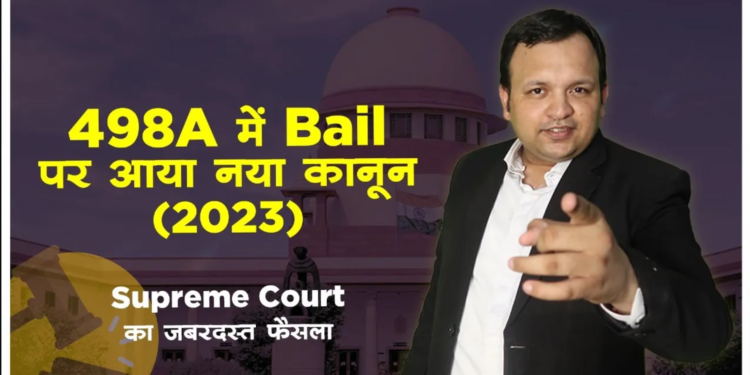INTRODUCTION
In cases where an FIR has been filed against the person violating the law laid down in 498A IPC, the person against whom the FIR has been filed has the option to file for anticipatory bail under Section 482 or Section 438 of the Code of Criminal Procedure. However, in various judgments including the landmark judgement of Arnesh Kumar v State of Bihar, the law has been clarified, that a person, against whom an FIR has been filed for an offence, which has the punishment of a maximum 7 years, cannot be arrested unless there is a substantial reason to do so, the reality of application of such precedents is something different. Therefore, the right to file for anticipatory bail becomes imperative to escape an unwanted arrest.
Feel free to contact us at; https://thelegalshots.com/legal-opinion/
In a recent judgement named, Kunal Choudhary v State of Karnataka, the Supreme Court has laid down an important aspect of anticipatory bail, which has to be kept in mind before granting bail by the courts in the country.
BRIEF FACTS OF THE CASE
In the present case, the wife filed an FIR against her husband under sec 498A IPC. The husband, in order to escape from getting arrested, filed an application for anticipatory bail in the Court of Sessions. Such an application was rejected by the court. The husband subsequently filed an application in the High Court of Jharkhand. The court granted the bail, however, the court made it conditional on the basis that the husband would have to take his wife home and treat her in a dignified manner. The husband, aggrieved by such an order, files a modification order in the court, stating that such a condition cannot be imposed while granting the bail and the same should be omitted.
The court dismissed the order stating the adamant attitude of the husband as the reason for such a rejection. The husband reached the Supreme Court. The issue before the court was whether such a condition can be imposed while granting anticipatory bail.
THE JUDGEMENT
The Supreme Court while considering numerous judgements and the facts of the matter, pronounced a judgement highlighting that such a condition, which acts as an unnecessary impediment to the bail itself, cannot be pronounced. If the High Court does not deem the granting of the bail fit, the court should not grant the bail, however, imposition of such a condition is contrary to the law. Further, the rejection of the modification order based on the adamant attitude of the husband is wrong and contrary to the law. With this rationale, the court granted anticipatory bail to the husband and struck down the condition.
CONCLUSION
The judgement discussed above sets an important legal precedent by highlighting the limitations on granting anticipatory relief under Section 498A IPC. The Supreme Court’s decision emphasises the importance of protecting against the imposition of conditions that interfere with personal agreements between spouses, ensuring that bail conditions are suitable and relevant to the specific situation.
To understand more such complex law in simple ways, stay connected with www.thelegalshots.com
If doubts still persist, contact our Legal Experts at- https://thelegalshots.com/legal-opinion/




